Fox News Flash top headlines for August 22
Fox News Flash top headlines are here. Check out what's clicking on Foxnews.com.
Some parents have taken to TikTok in recent days to participate in the trending #eggcrackchallenge, in which a child is led to believe that an egg will be cracked in a bowl by their caregiver — but instead its cracked on the child's forehead without warning.
It’s the children’s various reactions — from anger to sadness to laughter and spewed profanity — that have social media users sounding off. One psychologist who has weighed in on the viral trend said, "Tricks are not for kids."
"So I’m wondering why in a short video you would trick them?" Dr. Don Grant, national adviser for Healthy Device Management of Newport Healthcare in Los Angeles, California, told Fox News Digital in a telephone interview. "I watched it and the reactions. Any one of the kids, to agree to this — they had to be at the age of consent."
Grant went on, "To do this to gain hearts, likes, [or feel] ‘I’m cool' — you are risking having your child not trust you," he also said.
The hashtag #eggcrackchallenge currently has 60.4 million views on TikTok. Some videos show adults cracking an egg over their partner's head, but a majority of the clips show children.
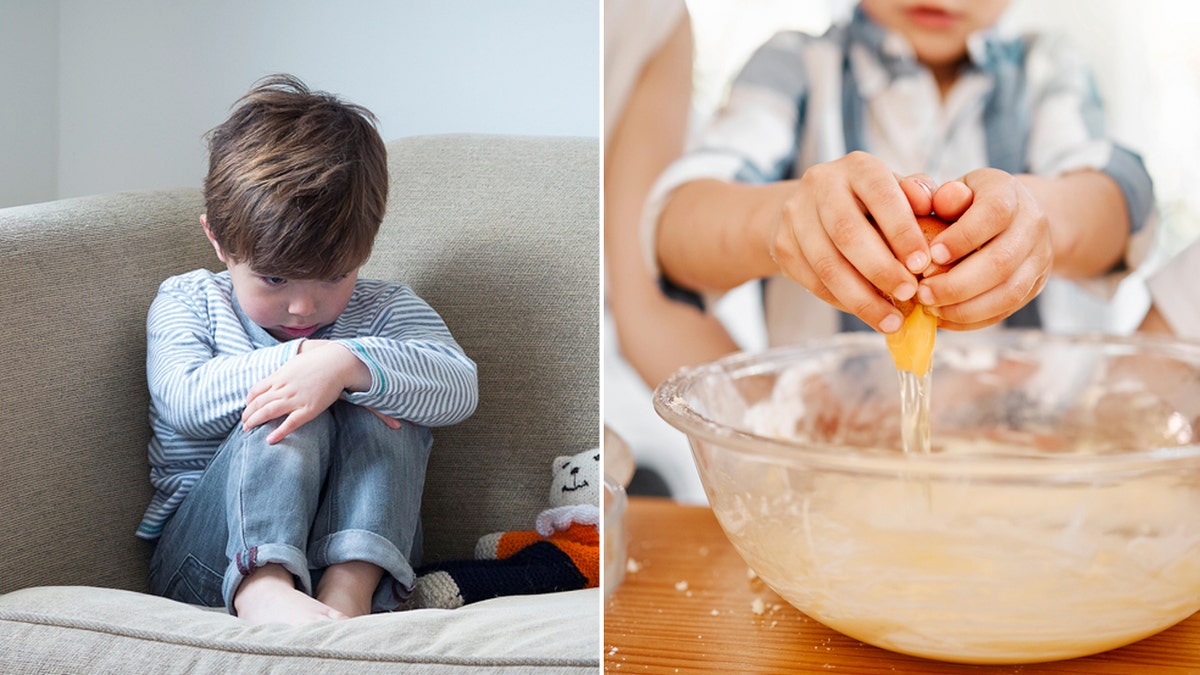
The viral #eggcrackchallenge on TikTok shows parents tricking their children before cracking an egg on their heads. Psychologists weighed in on this viral trend — and what parents and caregivers are risking. (iStock)
In one video, in which the comments have been turned off, a mother and child are about to "cook eggs" when the girl arguably appears confused as to why an egg was cracked on her head.
But not all kids have taken the joke to heart. In another video viewed by over two million people, a boy laughs and smiles after he meets the raw egg in a shell.
In another clip, a toddler appears to belly-laugh at the moment.
TEXAS PARENTS REVEAL CHARGING 19-YEAR-OLD DAUGHTER RENT AS TREND RECEIVES CRITICISM, SUPPORT
"That tickled his soul," a commenter wrote about the boy. "I love it, he wasn’t ready but took it like a pro."
"My favorite one yet … the laugh is infectious!" another person commented.
Other videos in which a child says, "Ouch," or arguably appears upset by their parent’s prank received criticism in the comments section.
"If you [are] video slapping your kid, you will be charged, not much of a difference," one person wrote. "So stupid and mean."
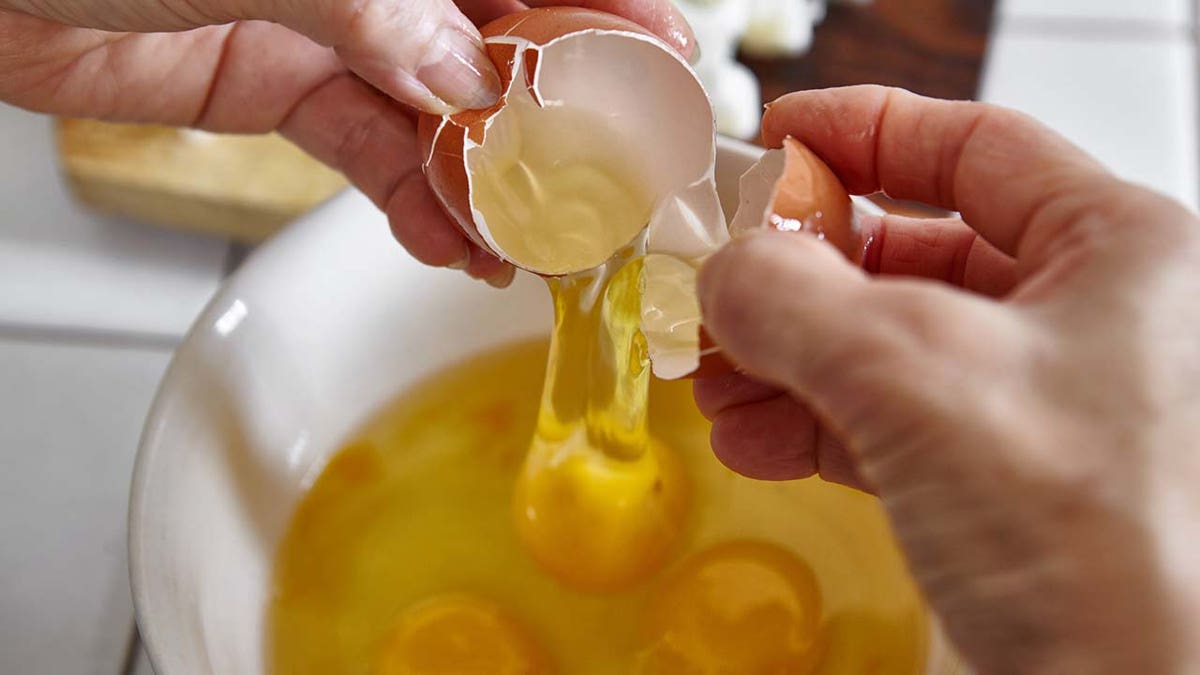
Many commenters on TikTok were divided in their opinions about the egg crack challenge as being "mean" or funny and cute. (iStock)
"Anyone who laughs at this sort of sick behavior really should be ashamed," another person commented. "Poor kid was clearly distressed. Disgusting."
"Agree!!" someone else replied in the same thread.
"Shame on you, this trend is so awful," said yet another person.
"Oh, the heartbroken look on her face at the end."
In a separate clip, a little girl gives a taste of the grownup’s own medicine by smashing an egg in her face, too.
Comments on that TikTok post appear to be split.
LITTLE BOY FROM MINNESOTA HAS 'WRONG' ANSWER WHEN MOM ASKS WHO MADE HIM 'SO CUTE'
"Oh, the heartbroken look on her face at the end," one user wrote. "She was so excited in the beginning and so hurt at the end. It's like a different child."
"I love this. Great job, mama. You taught her how to still be polite while protecting herself!" another person said.
Grant advised people that before they think about posting anything on social media, they should ask themselves, "What’s my motivation?" and "Why?"
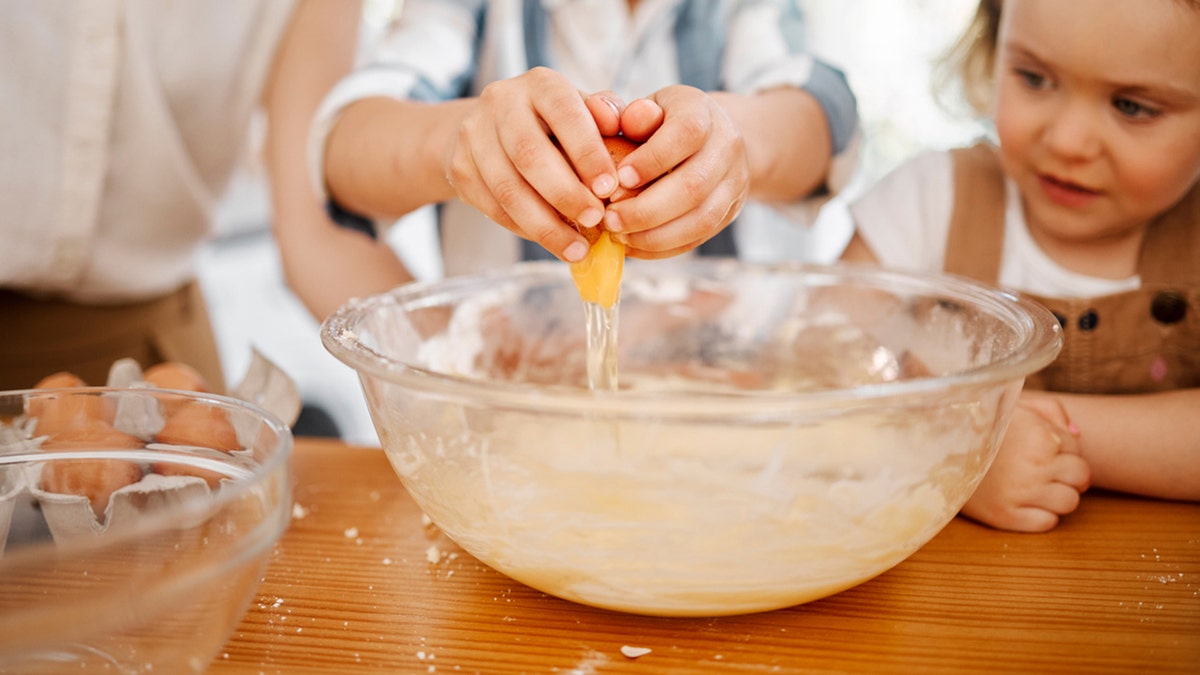
In a number of the viral videos, parents appear to have their children believe they may be cooking eggs or baking a dish together. And each child appeared to have different reactions after an egg was instead cracked right on their head. (iStock)
"I also tell parents, as a parent myself, whenever you’re involving your child, you really need to be careful," Grant said, adding that he noticed many of the kids in the viral videos were at ages at which they’re still building trust and security.
MOM'S VIRAL 'STRANGER DANGER' STRATEGY ALERTS PARENTS OF CRUCIAL TALKING POINT THEY MAY BE MISSING
"As a parent, our job is to protect our children from the world," he said.
"Our job is to buffer them and as a parent, for the sake of a video, I don’t see a gain versus the risk of this. Why would you as a parent put yourself in a situation where you're risking your child to [become] untrusting, shocked, surprised or shed a tear?"
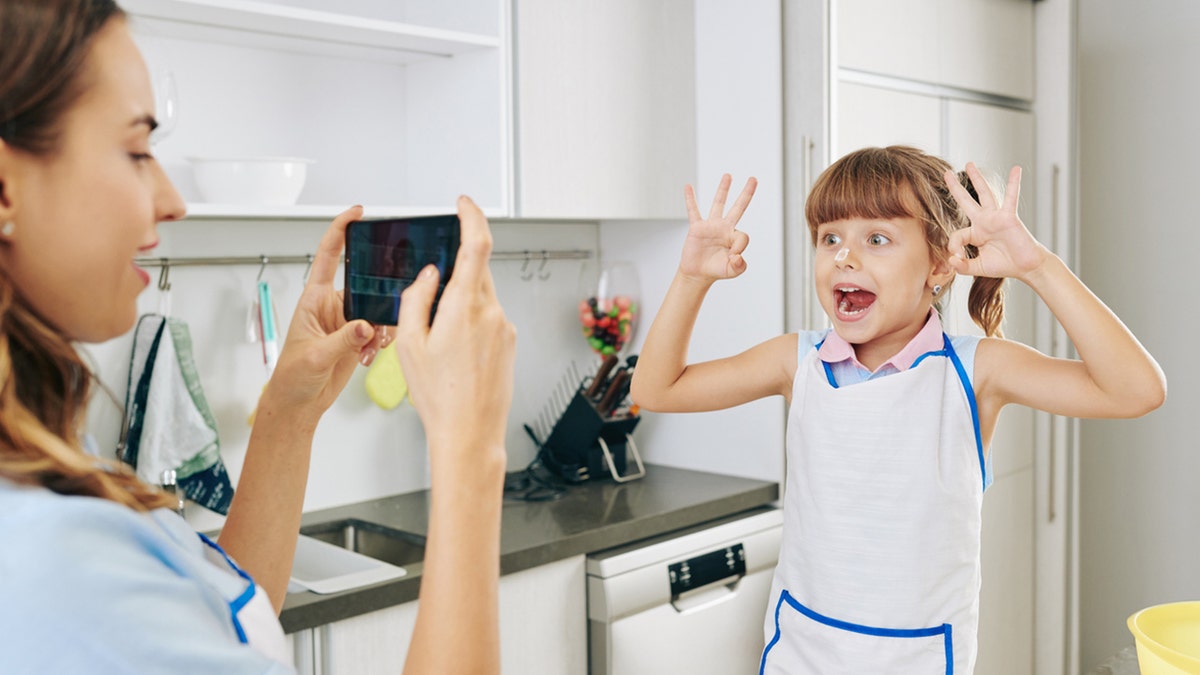
A majority of the #eggcrckchallenge videos on TikTok were filmed in selfie mode. Some of the clips have been viewed by millions. (iStock)
Dr. Mary Karapetian Alvord, director of the Rockville, Maryland-based Alvord, Baker & Associates, LLC — and a psychologist specializing in treating children, adolescents and adults — agreed that the problem with the egg crack challenge relates to social media use combined with the idea of mindful parenting.
FAMILY GAME CHANGER? WHY MOMS AND DADS ARE TURNING TO A VIRAL '5-SECOND' PARENTING TIP
"As young toddlers, they’re forming bonds and trusting relationships with parents," Alvord, who recently released the book, "The Action Mindset Workbook for Teens," told Fox News Digital.
"Some may think it's funny, but I would say to parents, ‘What’s the message you’re trying to give? What’s the outcome you’re seeking, and the emotional response you're trying to have?'"
She added, "[Children] look more to our behavior than just with what we say, so what we do is really critical."
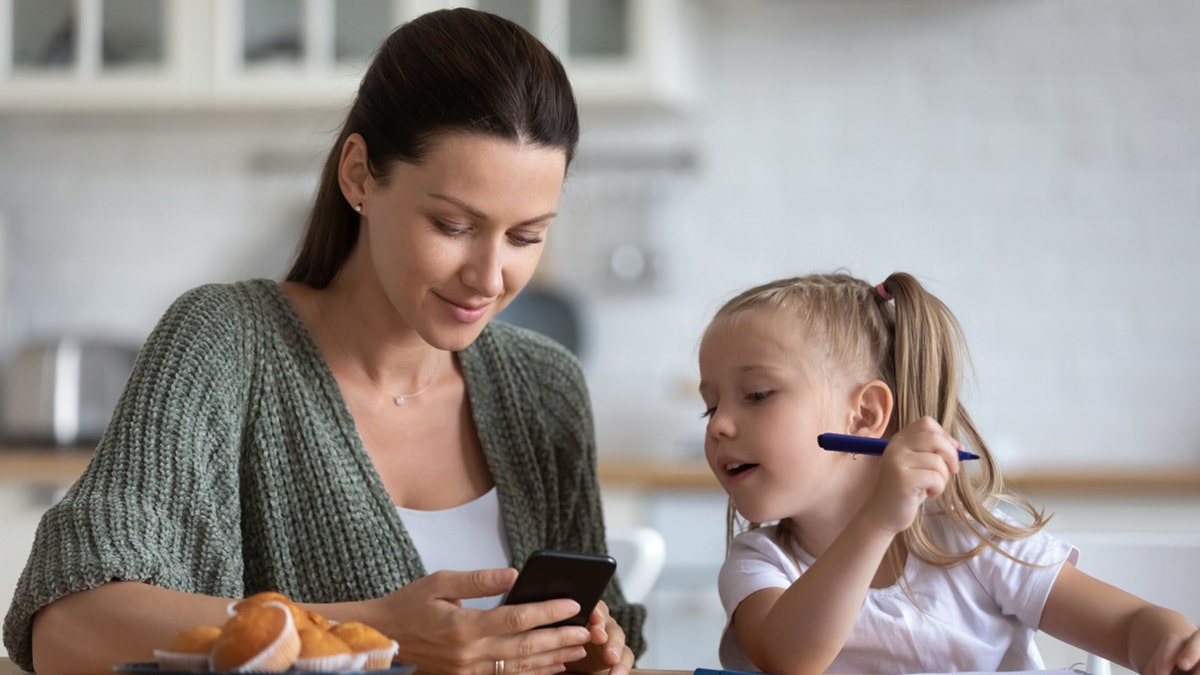
Parents are the biggest role models for their children, said one psychologist who specializes in treating children. (iStock)
Alvord said some people may think the egg-cracking prank is funny, though the outcome may not be what they intended.
"It's the issue of intent verse impact — what is the parent’s intent and what is the actual impact?" she noted.
Alvord said that in addition to the impact a challenge like this may have on a child, she worries about "sharenting" – a slang term used for parents who may be oversharing about their kids on social media.
SOUTH CAROLINA-BASED MOTHER OF THREE UNPACKS 'MOM GUILT,' REVEALS WHY IT OCCURS
"Ask yourself, ‘What's my purpose in doing this?' ‘How might my child or children react?’ ‘How might I react if someone does this to me?’ And, ‘Do I really want to post this?'"
She added, "Will it come back in the future to affect everyone?"
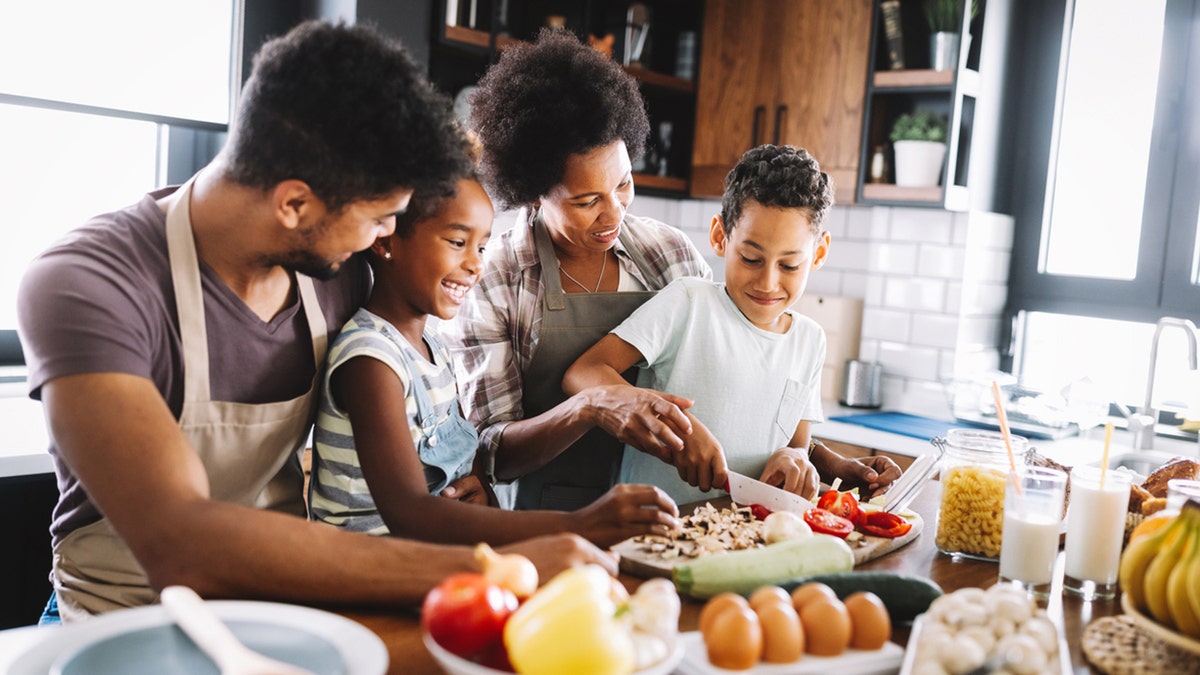
Parents should think before they act and think before they post on social media, said two experts. (iStock)
I’s not only about what’s posted on social media, it’s also about who is seeing what’s posted, said Grant.
"We [also] forget about the people watching it who don’t respond at all," he said, noting that a child’s teacher, a parent's boss or even family members "may have thoughts about the content you share."
"It could change their minds about us," he noted.
Here are more tips from both psychologists about thoughtful parenting and social media use.
Consider social media privacy and screen time
"Don’t talk about your kids, don’t talk about your partners. It's important that person is able to give consent and approval and know what's being posted," Grant noted.
Grant advises 15-minute scrolling sessions – tops – especially if social media is "negatively impacting your biological, sociological, academic success career trajectory" and more.
Find better ways to channel family fun
"Focus on your values," Alvord advised.
If you must post on social media, think about the risks attached and instead consider posting something positive, she noted.
"Figure out ways you can have fun and figure out [other] ways to be funny," Alvord said.
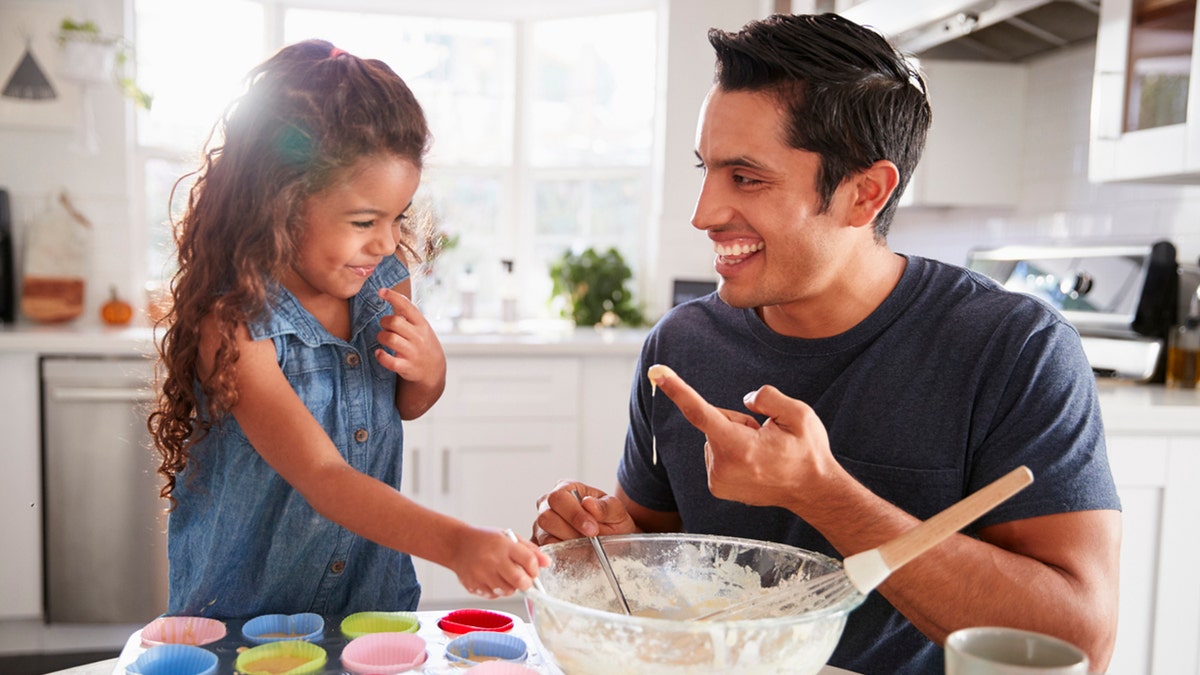
"Good communication" has a positive impact on families and on children. (iStock)
"Be mindful of your child's emotional reactions, their privacy and how you want to encourage humor in the family," she added.
Grant agreed that positive posts are better, such as a video of a parent or caregiver reading to a child or cooking together.
Know that moments could leave marks
Grant said some incidents or memories "could be blueprinted forever."
He added, "We don’t know based on the variable what will be."
CLICK HERE TO SIGN UP FOR OUR LIFESTYLE NEWSLETTER
"There’s a reason why we [as adults] don’t like that color, don’t like that smell, don’t like that person’s name. I don’t know if there’s a kid that has a vulnerability — now has some fear about eggs, cooking or baking," Grant added.
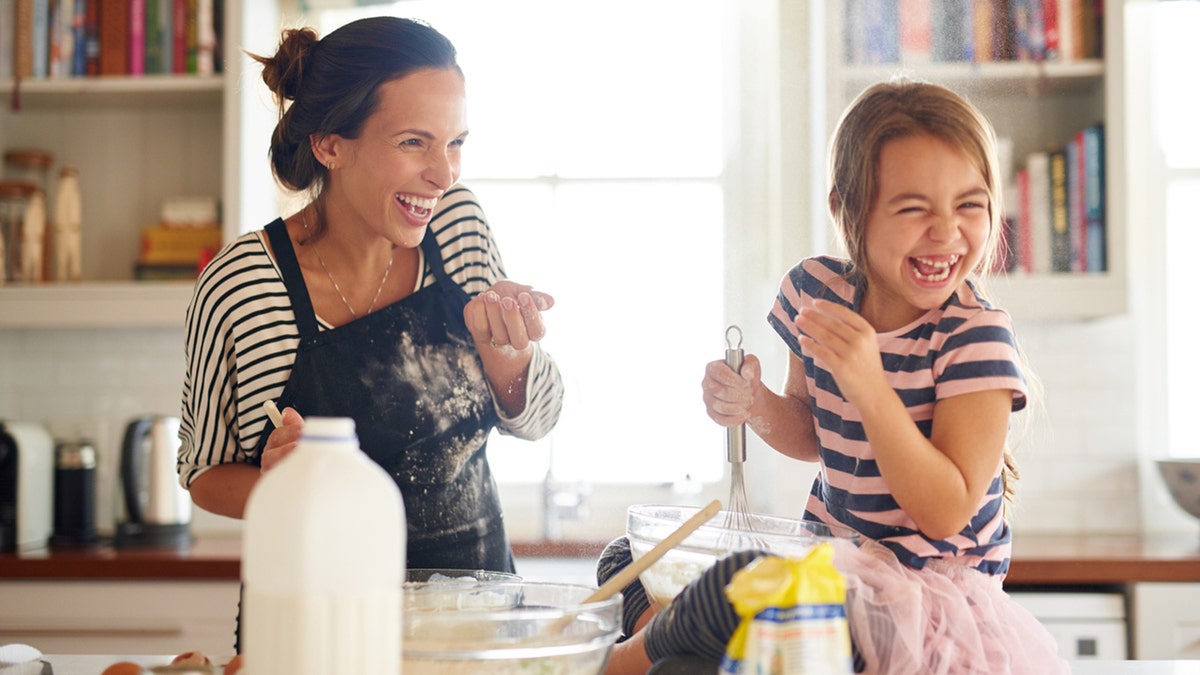
If parents want to post on social media about their children, two experts suggested posting positive videos. One psychologist noted she feels it isn't fair to "laugh at the expense of others" and then gain "likes" for that post. (iStock)
Grant said while not every child may be affected by jokes, still, parents should think before acting and also before posting online.
"Is it worth the risk?" he said. "Maybe there’s no risk."
CLICK HERE TO GET THE FOX NEWS APP
He also said parents with questions should lean on other parents, teachers and health professionals for support.










































